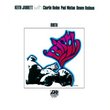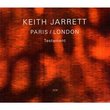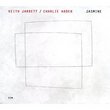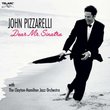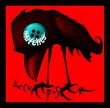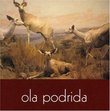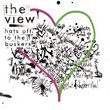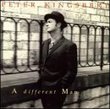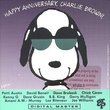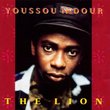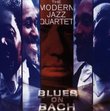| All Artists: Keith Jarrett Title: El Juicio (The Judgement) (Limited Edition) Members Wishing: 2 Total Copies: 0 Label: Atlantic UK Release Date: 11/21/1998 Album Type: Import, Limited Edition Genres: Jazz, Pop Styles: Modern Postbebop, Bebop Number of Discs: 1 SwapaCD Credits: 1 UPC: 075678078323 |
Search - Keith Jarrett :: El Juicio (The Judgement) (Limited Edition)
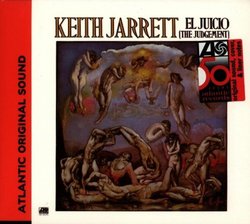 | Keith Jarrett El Juicio (The Judgement) (Limited Edition) Genres: Jazz, Pop
Japanese 24-bit remastered reissue packaged in a miniature LP sleeve. Details TBA. P.J.L. 2004. |
Larger Image |
CD DetailsSynopsis
Album Description Japanese 24-bit remastered reissue packaged in a miniature LP sleeve. Details TBA. P.J.L. 2004. Similar CDs
Similarly Requested CDs
|
CD ReviewsMind blowing music from Jarrett's American quartet! Gerardo Alejos | Merida, Mexico | 10/19/2002 (5 out of 5 stars) "..."El Juicio", recorded in July 1971, has a youthful exuberance and liveliness rarely found in Jarrett's subsequent albums ... Jarrett's American quartet is one of the essential post-bop ensembles, composed by strong-minded individuals who gave the band a powerful sound and an intensity rarely found in any jazz era. Dewey Redman plays some of his best solos up to that day, and he sounds specially charged in the explicit Ornette Coleman's tribute "Piece for Ornette". It is important to acknowledge Ornette's influence on the quartet, which proved that the new conceptions in jazz were finally breaking through, and new sounds emerged to express this radically new, evolving language. Charlie Haden, another one of Ornette's associates, shines throughout the album with a firm pulse, always giving the band a sense of direction. Paul Motian, arguably the most underrated member of Bill Evans' classic trio, shows that he's a true master of jazz, capable of creating strong grooves and giving emotional fuel to the soloists at the same time.My favorite song of "El Juicio" is the opener "Gypsy moth". Its opening theme is probably one of best themes Jarrett's ever written, it sounds strong and lively, reflecting the pulse of everything that was happening with the world then. The song is introduced by Jarrett's huge chords resonating with Paul Motian's immense two-beat groove, then Jarrett comments on the melody and plays a precise, attacking solo. Then Dewey Redman plays the theme on soprano, and takes a splendid solo full of fire. Listen closely to this song; even its final seconds are a thrill. Afterwards comes "Toll road", built around a riff played in unison by Redman's tenor and Jarrett's soprano. Motian's drums are rhythmically looser in this track, and especially in the title song, where he shows that he's one of the great modern drummers. Listen to his solo in "Pre-Judgment atmosphere" for a taste of his powers. Redman takes an impressive, Ornette-ish solo, but the surprise remains Jarrett's exciting solo, a fine proof of his (heavily underrated) soprano playing. "Pardon my rags" is a solo-piano tribute to Scott Joplin and the early grand masters of jazz piano like Jelly Roll Morton and Willie 'The lion' Smith, ... This last remark makes me want to discuss the heavy influence psychedelics and acid-rock had in late 60's-early 70's jazz, but that's a subject matter of a totally different article. "Pre-Judgement atmosphere" is exactly that: a recreation of the ambience that could be found in the early stage of death, and it sounds as a South-American tribe on strong ayahuasca ..."El Juicio" starts with a memorable theme, and Jarrett's awesome melodies are heightened by Paul Motian's free drumming. Jarrett's incredibly percussive piano solo sets it apart from the rest of the album, and its ecstatic moments remain the peak of the album. Finally, "Piece for Ornette" builds around what seems to be one of the greatest riffs Ornette Coleman never wrote, and features a massive tenor solo from Dewey Redman and fine soprano playing from Jarrett. Also, the interplay between Jarrett's soprano and Dewey Redman's tenor reminds us of the importance Ornette Coleman and Don Cherry's simultaneous playing had in modern jazz. Overall, this album is a great way to start listening to Jarrett's american quartet, and remains the foundation of much of what we would hear afterwards from Jarrett. If you dig this album and want to get deeper into this indispensable period of Jarrett's work, you should go directly to ECM's "The survivor's suite", generally considered the quartet's finest studio effort, and Impulse's "Fort Yawuh", recorded live at the Village Gate and featuring some of the wildest playing ever from Jarrett and Dewey Redman. Enjoy!"
|

 Track Listings (4) - Disc #1
Track Listings (4) - Disc #1